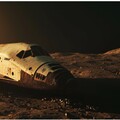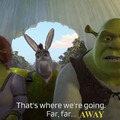In the last couple of years I started to arrange the books I have read into a list that I could give to my students if I become some sort of a teacher one day. (The age of retirement will be around 68-70 by the time a get there, so I have plenty of time to accomplish this.)
This list is by far not complete. I figured I would solve this in Tom Sawyer style, ie. if you send me suggestions, I will add them to the catalog. (In fact some of these books came as recommendations from colleagues at my workplace.)
So here we go, the first cut of the titles Electrical Engineering undergraduates at the Tech University might want to read to broaden their views about the people they work with and the professions they may not respect yet. I know that electrical engineers (developers in particular) are seated on the right of the Lord (it was the same 30 years ago, see on the left) but I think learning the basics of other areas of life – psychology in particular – will help you to reach your goals faster.
If you get into the situation that you need to lead other people (nope, you are not a naturally born leader…)
|
Eliot Aronson |
The book offers an introduction to social psychology. It probes the patterns and motives of human behavior, covering such diverse topics as conformity, obedience, politics, race relations, interpersonal attraction, and many others. |
|
|
Patrick Lencioni |
The book is centered around a cure for the most painful yet underestimated problem of modern business: bad meetings. |
|
|
Eric Berne |
The foundation of transactional analysis: The book is a clear catalogue of the psychological theatricals that human beings play over and over again. |
|
|
Jim Collins |
Collins takes up a challenge in the book: identifying and evaluating the factors and variables that allow a small fraction of companies to make the transition from merely good to truly great. |
|
|
The Arbinger Institute |
The authors expose the fascinating ways that we can blind ourselves to our true motivations and unwittingly sabotage the effectiveness of our own efforts to achieve success and increase happiness. |
|
|
Cynthia Shapiro |
A world of insider information and insights that can save your career! |
|
|
Laszlo Bock |
Learn from your best employees-and your worst, hire only people who are smarter than you are, pay unfairly (it's more fair!), Don't trust your gut: Use data to predict and shape the future, Default to open-be transparent and welcome feedback. |
|
|
Malcolm Gladwell |
Malcolm Gladwell takes us on an intellectual journey through the world of "outliers"--the best and the brightest, the most famous and the most successful. He asks the question: what makes high-achievers different? |
|
|
Sun Tzu |
“If you know the enemy and know yourself, you need not fear the result of a hundred battles. If you know yourself but not the enemy, for every victory gained you will also suffer a defeat. If you know neither the enemy nor yourself, you will succumb in every battle.” |
|
|
Stephen Covey |
At the start of every week, write a two-by-two matrix on a blank sheet of paper where one side of the matrix says “urgent” and “not urgent” and the other side of the matrix says “important” and “not important.” Then, write all the things you want to do that week. |
|
|
Ken Blanchard |
You’ll learn why tailoring management styles to individual employees is so important; why knowing when to delegate, support, or direct is critical; and how to identify the leadership style suited to a particular person. |
|
|
Roger Fisher William Ury Bruce Patton |
Negotiating Agreement Without Giving In - Getting to Yes offers a proven, step-by-step strategy for coming to mutually acceptable agreements in every sort of conflict. |
|
|
A harried plant manager working ever more desperately to try improve performance. His factory is rapidly heading for disaster. So is his marriage. He has ninety days to save his plant - or it will be closed by corporate HQ. He takes a chance meeting with a professor from student days - Jonah - to help him break out of conventional ways of thinking to see what needs to be done. |
||
|
Gene Kim Kevin Behr |
Three luminaries of the DevOps movement deliver a story that anyone who works in IT will recognize. Readers will not only learn how to improve their own IT organizations, they'll never view IT the same way again. |
If you need to fight the Killer Rabbit and the Holy Hand Grenade of Antioch is not around
|
Thomas Friedman |
Friedman explains how the flattening of the world (globalization) happened at the dawn of the twenty-first century; what it means to countries, companies, communities, and you; and how governments and societies must, adapt. |
|
|
Nicholas Carr |
Computing is turning into a utility, and the effects of this transition will ultimately change society as completely as the advent of cheap electricity did. |
|
|
Clayton Christensen |
Have you ever wondered why Wang, DEC or Compaq vanished? Great companies can fail precisely because they do everything right. |
|
|
Peter Schwartz |
The rapid advance of technology forces constant reevaluation of our society. With so many powerful forces at work and seemingly unpredictable events occurring, Schwartz argues that the future is foreseeable, and that by examining the dynamics at work today we can predict the “inevitable surprises” of tomorrow. |
|
|
Geoffrey Moore |
If you care about technology marketing, this is a must read book that focuses on the specifics of marketing high tech products during the early startup period. |
|
Andrew S. Grove |
The nightmare for every leader - when massive change occurs and a company must adapt or fall. Grove calls such a moment a Strategic Inflection Point, which can be set off by almost anything: mega-competition, a change in regulations, or a seemingly modest change in technology. When a Strategic Inflection Point hits, the ordinary rules of business go out the window. |
|
|
Walter Isaacson |
The Innovators
|
The Innovators is a saga of collaborative genius destined to be the standard history of the digital revolution—and an indispensable guide to how innovation really happens. |
|
Martyn Burke |
The history of Apple and Microsoft - a movie, not a book, but a must see for any IT guy. |
|
|
Paul Allen |
You may not like MSFT, but this is still around. This is how it started. |
|
|
Louis Gerstner |
The book tells the story of IBM's competitive and cultural transformation. Gerstner offers an account of his campaign to rebuild the leadership team and give the workforce a renewed sense of purpose. In the process, Gerstner defined a strategy for the computing giant and remade the ossified culture bred by the company's own success. |
|
|
Akio Morita |
The story of SONY from the very beginning. |
|
|
Bob Lutz |
This is actually about cars, but I left it in for those who wonder why product management matters. |
|
|
Paul Ceruzzi |
This history covers modern computing from the development of the first electronic digital computer through the dot-com crash. |
|
|
Martin Ford |
Technology and the Threat of a Jobless Future - “Computers can only do what they are programmed to do.” Well, not any more. Computers have long outgrown this quaint summation. Instead, they can now work things out for themselves. |
If you are interested in the financial industry
|
Patricia Beard |
The Fight for the Soul of Morgan Stanley |
|
|
Michael Lewis |
Inside the Doomsday Machine - the bond and real estate markets where greed invented derivative securities to profit from the shortsightedness of lower class Americans who could not pay their debts. And in return made the world economy collapse. |
|
|
Michael Lewis |
If you ever wondered why those microseconds in a trade matter. |
|
|
Jonathan Knee |
Inside the Decade That Transformed Wall Street - The author witnessed the lavish deal-making of the freewheeling nineties, when bankers rode the wave of the Internet economy, often by devil-may-care means. By the turn of the twenty-first century, the bubble burst and the industry was in free fall. What happened? You can learn it from this book. |
|
|
Michael Lewis |
This insider’s account of 1980s Wall Street excess transformed Michael Lewis from a disillusioned bond salesman to the best-selling literary icon he is today. Together, the three books - Flash Boys and The Big Short and this - cover thirty years of endemic global corruption―perhaps the defining problem of our age―which has never been so hilariously skewered as in Liar's Poker. |
|
|
Andrew Ross Sorkin |
The Inside Story of How Wall Street and Washington Fought to Save the Financial System--and Themselves. |
|
Simon Singh |
The Science of Secrecy from Ancient Egypt to Quantum Cryptography - the first sweeping history of encryption, tracing its evolution and revealing the dramatic effects codes have had on wars, nations, and individual lives. From Mary, Queen of Scots, trapped by her own code, to the Navajo Code Talkers who helped the Allies win World War II, to the incredible (and incredibly simple) logistical breakthrough that made Internet commerce secure. |
|
|
Samuel Greengard |
The Internet of Things is a networked world of connected devices, objects, and people. In this book, Samuel Greengard offers a guided tour through this emerging world and how it will change the way we live and work. |
|
|
David Anderson |
This book answers the questions: What is Kanban? Why would I want to use Kanban? How do I go about implementing Kanban? How do I recognize improvement opportunities and what should I do about them? |
|
|
Frederick P. Brooks Jr. |
The Mythical Man-Month
|
The Mythical Man-Month. With a blend of software engineering facts and thought-provoking opinions, Fred Brooks offers insight for anyone managing complex projects. These essays draw from his experience as project manager for the IBM System/360 computer family and then for OS/360. |





